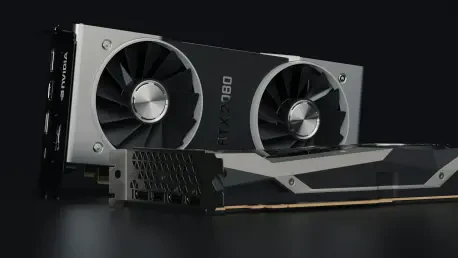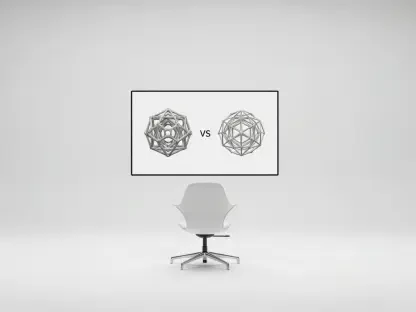In a world increasingly driven by artificial intelligence, the announcement of a billion-dollar deal between Nvidia, a titan in the U.S. tech industry, and the United Arab Emirates (UAE) promised to be a landmark moment for technological collaboration in the Middle East. This agreement, unveiled during a significant diplomatic engagement, was set to provide the UAE with access to Nvidia’s state-of-the-art AI chips in exchange for a hefty investment of up to $1 billion in U.S. infrastructure. Yet, months after the initial fanfare, the deal remains mired in delays, with tensions mounting between the two parties. Nvidia’s CEO, Jensen Huang, has openly voiced frustration over the slow pace, while U.S. officials and UAE stakeholders grapple with complex issues stalling progress. This situation not only highlights the challenges of international tech partnerships but also underscores broader geopolitical and economic concerns shaping the future of AI innovation on a global scale.
Financial Hurdles and Unfulfilled Promises
The core of the delay in this high-stakes deal lies in the UAE’s failure to deliver on its financial commitments, a critical component of the agreement with Nvidia. Under the terms discussed, the UAE pledged to invest up to $1 billion in U.S. infrastructure as a prerequisite for receiving the cutting-edge AI chips essential for their ambitious artificial intelligence projects. However, despite the passage of several months, the promised funds have not materialized, leaving the delivery of the chips in limbo. U.S. Commerce Secretary Howard Lutnick has made it abundantly clear that shipments will not proceed until the financial obligations are met. This standoff has created a significant bottleneck, with Nvidia unable to move forward on its end of the bargain. The lack of investment not only jeopardizes this specific transaction but also raises questions about the reliability of large-scale international commitments in the tech sector, where timing and trust are paramount to success.
Beyond the immediate financial snag, the delay reflects deeper challenges in aligning economic expectations between nations with differing priorities. For the UAE, the investment represents a substantial outlay that may require complex internal approvals and strategic planning, potentially contributing to the holdup. Meanwhile, Nvidia and U.S. authorities are under pressure to ensure that any deal adheres to strict fiscal accountability, especially given the scale of the transaction. The situation is further complicated by the broader economic climate, where global markets are navigating uncertainties that can impact such large investments. This financial friction illustrates the intricate dance of international partnerships, where a single unmet condition can halt progress and strain relations. As both sides work to resolve these monetary issues, the outcome could set a precedent for how future tech deals are structured, emphasizing the need for clear timelines and enforceable commitments in cross-border collaborations.
National Security Concerns in the Spotlight
Another significant factor contributing to the delay of the Nvidia-UAE deal is the heightened scrutiny over national security implications tied to the export of advanced AI technology. U.S. officials are particularly cautious about the potential misuse of Nvidia’s chips, given the UAE’s geopolitical relationships, including ties with China that have raised concerns in Washington. The fear is that such cutting-edge technology could be redirected or utilized in ways that might compromise American strategic interests. This apprehension is part of a larger U.S. policy trend to impose stringent oversight on tech exports, especially in the realm of artificial intelligence, where the stakes are extraordinarily high. Until these security concerns are adequately addressed, the shipment of the chips remains on hold, underscoring the delicate balance between fostering innovation and protecting national priorities in an era of intense global competition.
The security dimension of this deal also highlights the broader challenges of international tech collaboration amidst geopolitical tensions. The U.S. government’s cautious approach is driven by a need to safeguard sensitive technology from falling into the wrong hands, a concern amplified by the rapid pace of AI development and its potential dual-use applications. For the UAE, navigating these suspicions requires demonstrating a commitment to transparency and alignment with U.S. security protocols, which may involve additional negotiations or assurances. This dynamic adds another layer of complexity to the stalled agreement, as resolving these concerns demands diplomatic finesse alongside technical and financial resolutions. The ongoing discussions between the involved parties reflect a critical juncture where trust must be rebuilt, and safeguards established, to ensure that technological partnerships do not inadvertently undermine global security frameworks.
Strategic Importance Amidst Setbacks
Despite the hurdles, the strategic value of the Nvidia-UAE partnership remains undeniable, positioning it as a pivotal alliance for extending U.S. technological influence in the Middle East. The UAE, through entities like Abu Dhabi-based AI firm G42, has emerged as a regional powerhouse in AI development, eager to leverage Nvidia’s latest hardware for groundbreaking initiatives such as OpenAI’s Stargate program. U.S. officials see this collaboration as a chance to bolster alliances with nations invested in cutting-edge technology while promoting American innovation on a global stage. This deal is viewed as a counterweight to the growing tech influence of other global powers, reinforcing the importance of maintaining leadership in AI. Even with the current delays, the potential for mutual benefit keeps both sides committed to finding a path forward, recognizing the long-term implications of this partnership for regional and international tech landscapes.
The strategic allure of this deal extends beyond immediate economic gains, touching on the broader goal of scaling AI innovation globally while strengthening diplomatic ties. For Nvidia, securing a foothold in the Middle East through the UAE offers access to a burgeoning market hungry for advanced technology, enhancing its global reach. Meanwhile, the U.S. benefits from aligning with a key regional player willing to invest heavily in shared technological goals, fostering a collaborative environment that could yield future innovations. However, the setbacks remind all stakeholders of the need for patience and persistence in navigating the complexities of such alliances. The focus remains on resolving the immediate issues to unlock these strategic advantages, ensuring that the partnership can serve as a model for how nations can work together to advance technology while addressing mutual concerns. This balance is crucial for sustaining momentum in an increasingly interconnected and competitive global tech arena.
Path Forward Through Collaboration
Reflecting on the stalled Nvidia-UAE deal, it’s evident that the challenges of delayed investments and national security apprehensions dominate the narrative. Both parties face significant obstacles, from the UAE’s unfulfilled financial pledges to the U.S. government’s rigorous oversight to protect strategic interests. The strategic importance of this partnership, however, keeps the dialogue alive, with a shared recognition of the potential to advance AI innovation and solidify geopolitical alliances. Looking ahead, the resolution of these issues hinges on renewed commitments and transparent communication. A feasible next step involves establishing a clear timeline for the UAE’s investment, coupled with robust security agreements to alleviate U.S. concerns. Additionally, fostering ongoing diplomatic engagement could help build trust and ensure alignment of goals. The outcome of these efforts may well shape the framework for future international tech collaborations, offering valuable lessons on balancing economic aspirations with protective measures in a complex global landscape.









